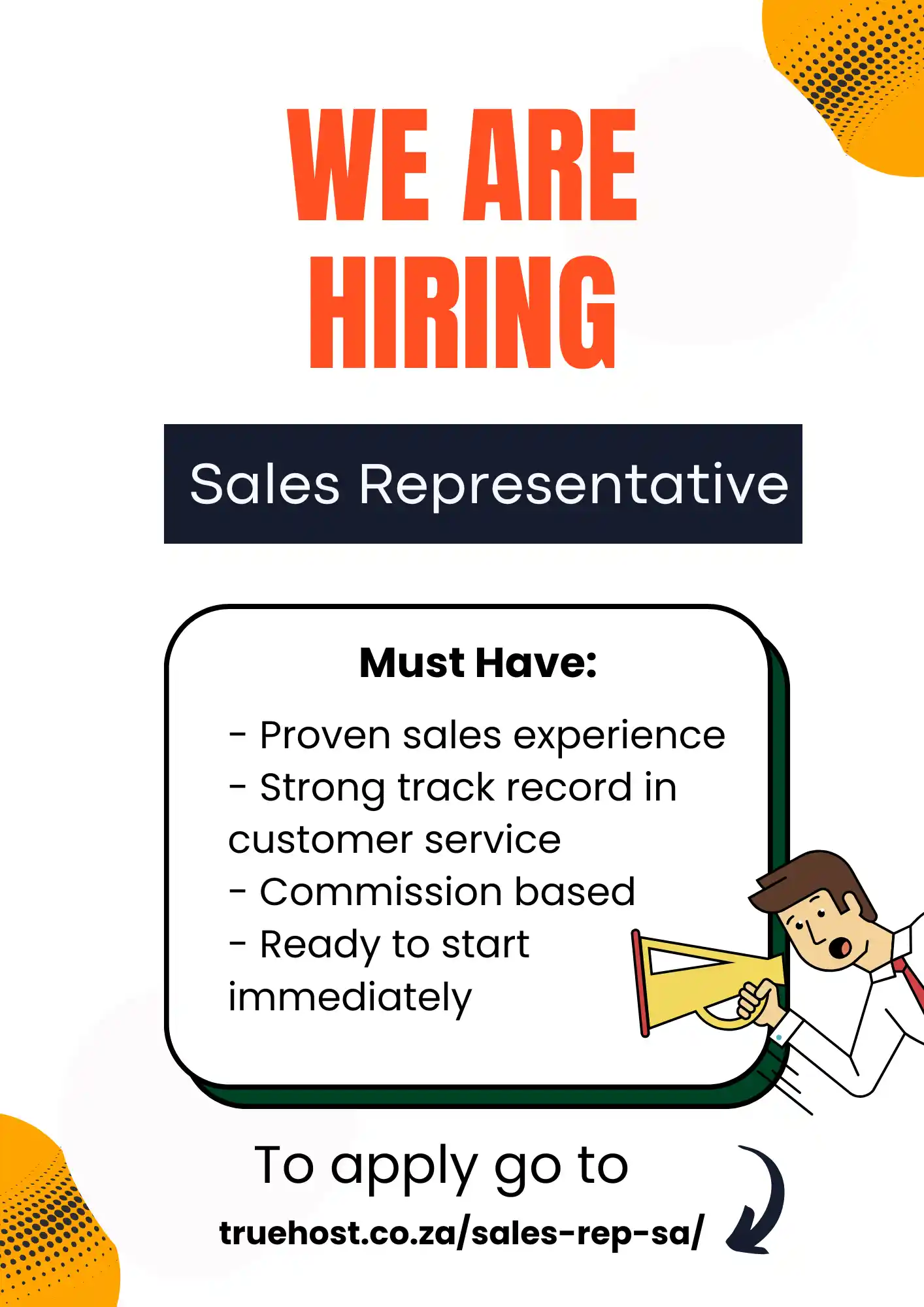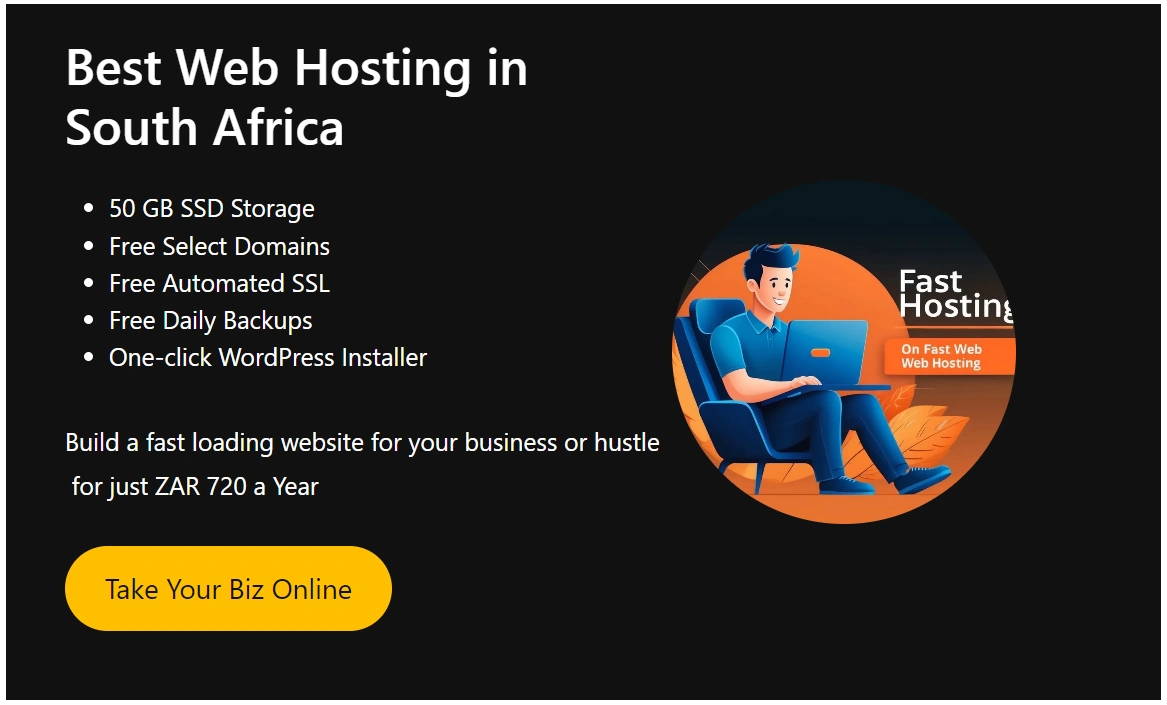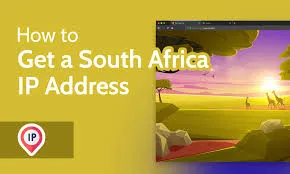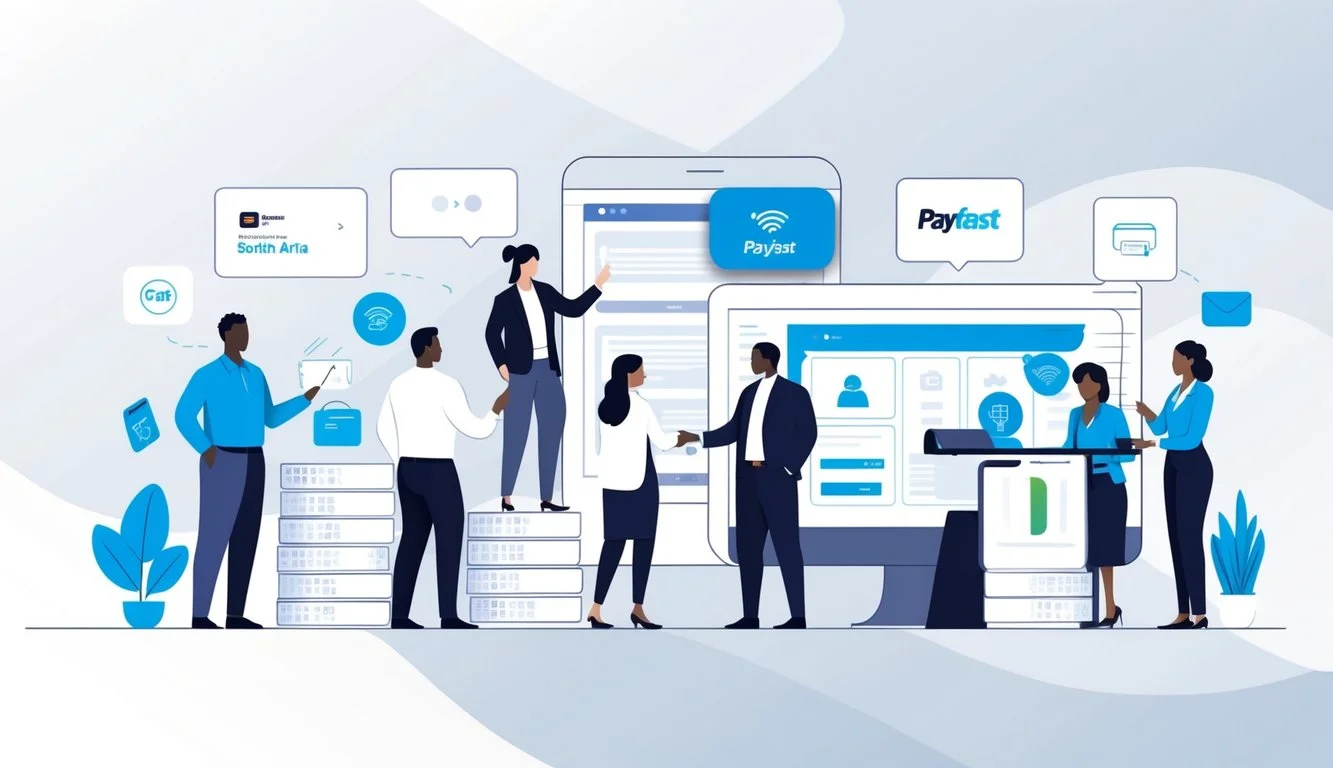South Africa is experiencing a tech boom and web development is one of the most in-demand skills.
With more businesses going digital, there are lots of exciting opportunities for web developers to make money in South Africa.
Some key reasons why web development is a great career choice:
- High demand for web developers as companies adopt digital technologies
- Higher pay compared to average South African salaries
- Remote work options – ability to work for companies based abroad
- Flexible hours and location as a freelancer
- Potential to earn in foreign currency such as USD, GBP, EUR
There are several paths one can take to earn as a web developer:
| Type of Work | Description |
|---|---|
| Freelancing | Working independently for multiple clients |
| Full-time job | Permanent or contract role at a company |
| Side projects | Building your own products/services |
Some of the most popular skills and technologies one should learn include:
- JavaScript
- Python
- React
- Node.js
- WordPress
With some dedicated effort to build your skills and portfolio, you can start making good money as a web developer within a year.
This blog post covers the various options from freelancing to jobs to side projects for earning income as a web developer in South Africa.
I’ll also provide tips on learning web development, creating an effective portfolio, finding clients and jobs, networking, and monetizing your own projects.
Table of Contents
#1. Learn In-Demand Web Development Skills
To start earning as a web developer in South Africa, you need to build your skills in programming languages and frameworks that are in high demand. Here are some of the most popular and lucrative skills to learn:
JavaScript
JavaScript is used everywhere on the web – from web apps and frontend frameworks to game development and server-side programming. Mastering JavaScript is a must for any web developer.
Some JavaScript topics to learn:
- JavaScript Fundamentals – Syntax, DOM manipulation, events etc.
- ES6+ – Modern JavaScript features
- Asynchronous Programming – Ajax, Promises, Async/Await
- React – The most popular JavaScript framework
- Angular – Google’s frontend web framework
- Vue.js – Progressive JavaScript framework
- Node.js – For backend development
Python
Python is one of the most in-demand programming languages in the world. As a web developer in South Africa, having Python skills will open up job opportunities.
Some Python topics to learn:
- Python Fundamentals – Data types, control flows, OOPs etc.
- Python Web Frameworks – Django and Flask
- Web Scraping – BeautifulSouop, Scrapy etc.
- Data Analysis – NumPy, Pandas, Matplotlib
- Machine Learning – Scikit-learn, TensorFlow etc.
Databases
Understanding databases is a must for full-stack web development.
Some popular databases:
- SQL – MySQL, PostgreSQL, MariaDB
- NoSQL – MongoDB, Cassandra, Redis
Other Useful Skills
- Git – Version control system used by developers
- Linux – Many servers run on Linux OS
- REST APIs – For exchanging data between clients and servers
- Responsive web design – For optimal viewing on all devices
- Web security – Tools like HTTPS, SSL, OAuth etc.
- Web performance – Optimization, caching, image compression etc.
There are many free and paid resources available online to learn web development skills. Some recommendations:
- FreeCodeCamp – Free full-stack web dev curriculum
- The Odin Project – Another free full-stack course
- Codecademy – Interactive coding lessons
- Udemy – Affordable paid courses from experts
- Udacity – Nanodegree programs on web dev
- Pluralsight – Premium training platform for developers
- YouTube tutorials from channels like Traversy Media
The key is to consistently spend time learning and building projects to apply your knowledge.
#2. Build an Impressive Portfolio Website
Your portfolio website is one of the most effective ways to demonstrate your skills and get freelance/job opportunities as a web developer.
Here are some tips for creating a killer portfolio site:
- Use a custom domain – Looks more professional than free sites like GitHub Pages
- Pick a clean, modern design – Showcases your frontend skills
- Make it responsive – Mobile-friendly with no broken UI
- Highlight 3-5 best projects – With descriptions, tech used, images/GIFs
- Include contact info – Email, LinkedIn, social media links
- Write easy-to-read code – With comments and proper formatting
- Make pages fast – Optimize images, minify code, efficient libraries
- Describe your skills – Proficiency in languages, frameworks, tools etc.
- Share testimonials – Reviews from clients, colleagues, managers
- Update frequently – Add new projects and skills regularly
Here are some inspiring portfolio site examples:
A good portfolio site is a lifelong investment that grows along with your career.
#3. Freelance and Remote Work Opportunities
Freelancing is a great way to earn as a web developer in South Africa while maintaining flexibility and independence.
Popular Freelancing Platforms
Here are some of the top freelance websites used by South African developers:
- Upwork – World’s largest freelance site
- PeoplePerHour – Hourly paid freelance jobs
- Fiverr – Freelance services starting at $5
- Freelancer – Website for hiring freelancers
- Guru – Freelance & contract work marketplace
- Truelancer – Popular in South Africa
- Flexing It – Curated freelance jobs
To get started:
- Create a compelling profile highlighting your skills
- Build up good reviews by delivering great work
- Bid competitively but not too low
- Be responsive in communication
- Stick to timelines and agreements
Remote Work Opportunities
There are also many opportunities to work remotely for companies based overseas. Some tips:
- Look for openings on platforms like We Work Remotely, Remote OK
- Apply for roles in your tech stack – React, Node.js, Python etc.
- Leverage LinkedIn to find openings and connect with recruiters
- Ensure good overlap with team working hours for collaboration
- Clarify remote work expectations with company beforehand
Remote work allows you to earn salaries in foreign currency while living in South Africa.
#4. Apply for Web Developer Jobs in South Africa
There are a growing number of job opportunities for web developers at tech companies, digital agencies, and startups in South Africa.
Here are some tips for getting hired:
- Identify relevant openings on sites like Careers24, CareerJunction, and company career pages
- Brush up your knowledge of data structures & algorithms
- Prepare for technical phone/online screens and in-person interviews
- Revamp your CV for each role, matching required skills
- Show passion and eagerness to learn on the job
- Check Glassdoor reviews to negotiate fair pay
Some companies that frequently hire web developers:
With some preparation, you can land a lucrative web developer role at a great company in South Africa.
#5. Network and Build Connections
Networking plays a key role in advancing your career as a web developer. Here are some tips:
- Attend meetups and conferences to connect with others:
- DevConf
- CodeTribe
- DevFest
- PyCon ZA
- Jozi Lang Meetup
- GDG Johannesburg
- Join online communities like /r/webdev on Reddit
- Follow influential developers on Twitter and LinkedIn
- Attend tech company events and demos
- Speak at meetups and conferences once you gain experience
- Help others by answering questions on forums
Tips for effective networking conversations:
- Ask thoughtful questions
- Share your experiences
- Offer advice and recommendations
- Avoid bragging or being pushy
- Follow up via email for more substantial connections
Networking leads to job opportunities, product feedback, skill growth, and fulfilling friendships with like-minded developers.
#6. Develop Your Own Apps and Websites
One of the most lucrative ways for web developers to earn money in South Africa is by building their own applications, SaaS products, online services, and websites.
With some business savvy and marketing skills, these projects can become successful startup companies or stand-alone income sources.
Here are some app and website ideas that have monetization potential:
Coding Tutorials Website
- Teach web development, programming, design through written and video tutorials
- Monetize via advertisements, affiliate marketing, paid memberships
- Examples: freeCodeCamp, W3Schools, Coursera
Portfolio Website Templates
- Create stylish templates for developer portfolio sites
- Sell on marketplaces like ThemeForest and Creative Market
- Offer premium templates, plugins, icons, and design assets
Mobile Apps
- Build useful or entertaining apps for iOS and Android
- Offer free app with in-app purchases and upgrades
- Charge one-time fee for paid app downloads
- Examples: gaming, photo editing, drawing apps
SaaS Web Applications
- Develop software-as-a-service web apps
- Charge monthly/annual subscription fees
- Offer free and premium application tiers
- Examples: project management, email marketing, accounting tools
Ecommerce Online Stores
- Sell physical products, digital downloads, services
- Use platforms like Shopify, WooCommerce, Magento
- Take commissions on items sold through store
Email Newsletter Service
- Create engaging email newsletters for clients
- Charge subscription fees per month/year
- Offer free and paid newsletter tiers
Browser Extensions and Plugins
- Build extensions for Chrome, Firefox, Safari
- Offer free version with limited features
- Charge one-time or recurring fees for premium version
Coding Consultation/Coaching
- Offer paid consulting to companies and developers
- Conduct technical interviews and code reviews
- Provide coaching to developers to improve skills
Job Board Website
- Develop a site to connect developers to employers
- Charge companies to post job openings
- Offer premium job listings and placement services
Programming Podcast
- Create a podcast focused on coding topics
- Earn sponsorship revenue from brand advertisements
- Get sponsors relevant to developers like web hosts, tools etc.
Recommendations for Monetizing Your Own Apps and Websites
Here are some tips for making money from your own projects:
a). Have a monetization strategy before you start developing
Build some form of monetization into the project design and development from the beginning.
Decide on the revenue model early – one time purchases, subscriptions, in-app purchases, advertising etc.
b). Launch quickly and iterate
Get a Minimum Viable Product (MVP) to market as fast as possible.
Gather user feedback to rapidly add features that customers will pay for.
Avoid getting stuck on perfecting the first product release.
c). Provide significant value to users
Ensure your product stands out by offering something better or different from competitors.
Solve a real need or provide enjoyment. The more value you provide, the easier it will be to monetize.
d). Build an email list
Collect emails from the start to communicate with customers.
Send new feature announcements, content upgrades, special deals etc. Email is one of the best ways to drive sales.
Offer lead magnets like free tutorials or trials in exchange for emails.
e). Promote on social media
Run Facebook, LinkedIn ads targeting relevant demographics.
Post updates and run contests on Twitter and Instagram.
Leverage influencers in your niche by providing free access in exchange for promotions.
f). Publish SEO-optimized content
Write blog posts and tutorials to bring in organic search traffic. Focus on keywords and questions your target users are searching.
The traffic from search engines can help grow your user base.
g). Consider free and freemium tiers
For apps and services, offer a compelling free version with limitations to attract users.
Convert some free users to paying customers by providing additional features or offerings in premium paid tiers.
h). Build partnerships and affiliate programs
Let others promote your product and take a revenue share.
Influencers and companies with aligned audiences can send high quality users.
i). Analyze metrics
Track usage data, conversions, demographics etc. to optimize monetization.
Figure out which features users are willing to pay for. Assess what marketing channels give the best return on spend.
Tweak your product and marketing efforts based on data.
j). Persevere through challenges
It takes time and effort to build traction.
Don’t expect overnight success. Stick with it and keep improving the product and business model.
Success comes from doing the right things consistently over time.
With some business savvy and tenacity, your side projects and startups can become profitable sources of income as a developer in South Africa.
The opportunity is there if you provide something of real value that makes people want to pay.
Wrap!
South Africa offers many rewarding opportunities for web developers to earn income via freelancing, jobs, side projects and more.
To build a successful career in web development, it’s important to master in-demand skills, create an outstanding portfolio, consistently network, and develop your own products.
Remember to keep learning and growing your skills over time.
The possibilities are endless for talented web developers in South Africa!
 Web Hosting
Web Hosting Windows HostingBuilt for Windows apps and websites – stability, speed and flexibility
Windows HostingBuilt for Windows apps and websites – stability, speed and flexibility Reseller HostingLaunch a hosting business without technical skills or expensive infrastructure
Reseller HostingLaunch a hosting business without technical skills or expensive infrastructure Affiliate ProgramRefer customers and earn commissions from sales across our platform
Affiliate ProgramRefer customers and earn commissions from sales across our platform Domain SearchFind and secure a domain name in seconds with our quick lookup tool
Domain SearchFind and secure a domain name in seconds with our quick lookup tool CO ZA Domains
CO ZA Domains All DomainsExplore domain names from over 324 TLDs globally – all in one place
All DomainsExplore domain names from over 324 TLDs globally – all in one place Free Whois Lookup Tool South Africa
Free Whois Lookup Tool South Africa VPS
VPS SSLs
SSLs









